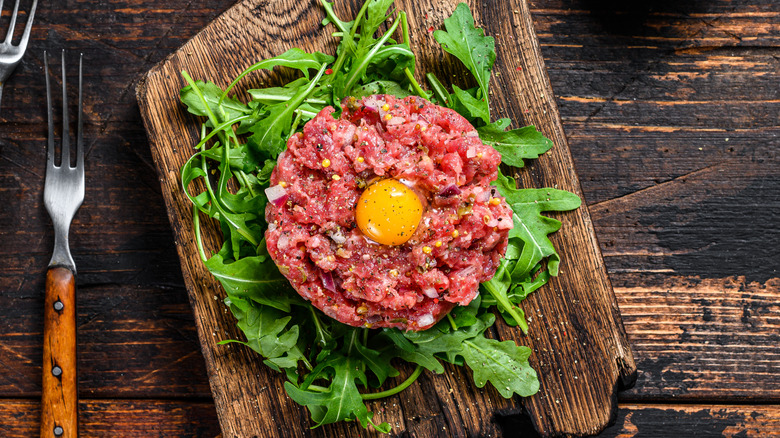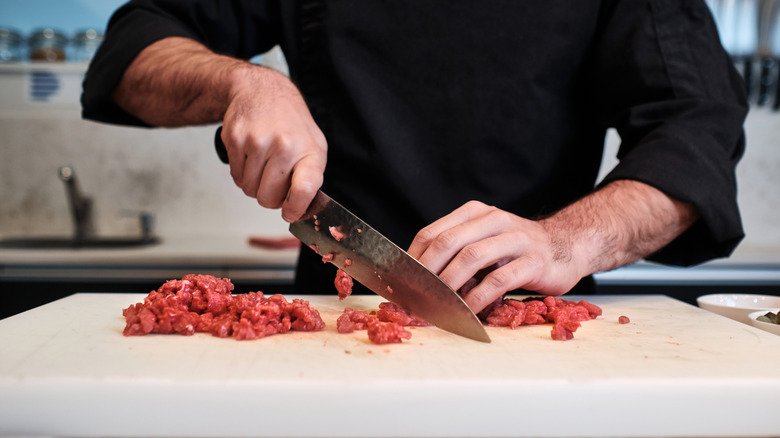The Complex Origins Of Steak Tartare
Consisting of raw ground beef, egg yolks, and flavorings like Worcestershire sauce, salt, and pepper, steak tartare has a reputation for being a sophisticated delicacy. It also works as a sort of upscale comfort food, especially when you consider that steak tartare with fries is a classic French combo. However, the origins of steak tartare are not quite as easy to parse as its popularity. It's often said that the recipe originated with the Tatars, who were lumped in with the Mongol peoples of Central Asia. In the past, the latter group would keep raw horse meat under their saddles that became tenderized after a long day of riding. However, the practice was most likely intended to treat the sores incurred by the galloping horses and not used as a method of food preparation.
Instead, steak tartare as the recipe is known today probably originated in France in the late 1800s or early 1900s. The dish used to be called beefsteack à l'Américaine. Eventually, the recipe underwent alteration at the hands of Georges Auguste Escoffier, a renowned French chef who had a meteoric impact on the culinary world. Chef Escoffier is credited for developing Beefsteack à la Tartare, which consisted of raw beef served with tartar sauce and lacked the egg yolk. In fact, the association with tartar sauce is probably how the dish got its name, as it was a common naming convention for any dish that featured tartar sauce on the side (even though tartar sauce is no longer a common flavoring agent in modern steak tartare recipes).
Steak tartare's mythic origins borne from a smear campaign
It's believed that the connection between steak tartare and Mongol warriors came from the writings of globe trekker Jean de Joinville, who lived during the 13th and 14th centuries. In reality, Joinville might not have had any contact with the Mongol peoples and possibly started a rumor to smear their culture. While consumption of different types of raw meat is quite common these days, at the time certain European cultures would have most likely found the practice distasteful, which could explain why Joinville mischaracterized what was actually an ingenious and practical method of caring for horses.
Outside of the rumor-mongering that contributed to the dish's murky origins, many people have concerns about the raw elements in steak tartare recipes. It's often claimed that some foods should never be eaten raw, and both raw eggs and raw meat appear on the list. However, it's possible to offset your risk of foodborne illness when preparing steak tartare by following some important rules.
Always start with a whole cut of beef as opposed to pre-ground beef, and make sure that you choose a quality cut from a reputable butcher or supermarket. Additionally, beef must be stored in a refrigerator with a temperature of 40 degrees Fahrenheit or colder to deter bacterial growth. Steak tartare is subject to all sorts of myths and misinformation, but that certainly doesn't take away from the uniquely satisfying experience it offers.

